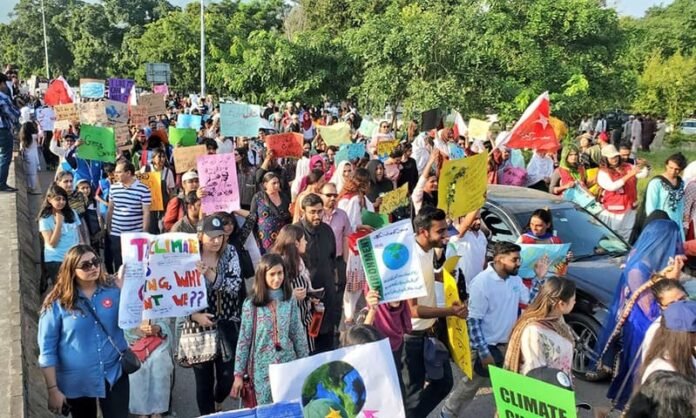Pakistan, one of the most climate-vulnerable nations, struggles to mobilize climate advocacy, especially in Karachi. The country struggles to understand and address its climate issues despite contributing 0.9% to global GHG emissions. Climate policy development has been slowed by limited expertise, resources, and government support.
Climate marches and renewable energy initiatives have struggled to gain traction due to campaigners’ fear of being labeled traitors. The media’s concentration on climate calamities rather than solutions makes civic society unprepared to act on climate change. Paid climate training programs draw people more interested in money than activism.
A prominent exception is the Sindh Forest Department’s nature-based carbon credit scheme. However, this enterprise highlights climate justice inequality, as surrounding communities receive little from its earnings.
The government, NGOs, and community groups must work together to promote science-based climate advocacy. Pakistan can only build a climate-ready workforce by engaging the people and addressing institutional inefficiencies. Without cooperation, the nation will become more vulnerable to climatic disasters.
Pakistan’s climate change struggle depends on removing these obstacles and building a proactive, informed movement.
Image Credits: https://www.dawn.com/news/1506308



